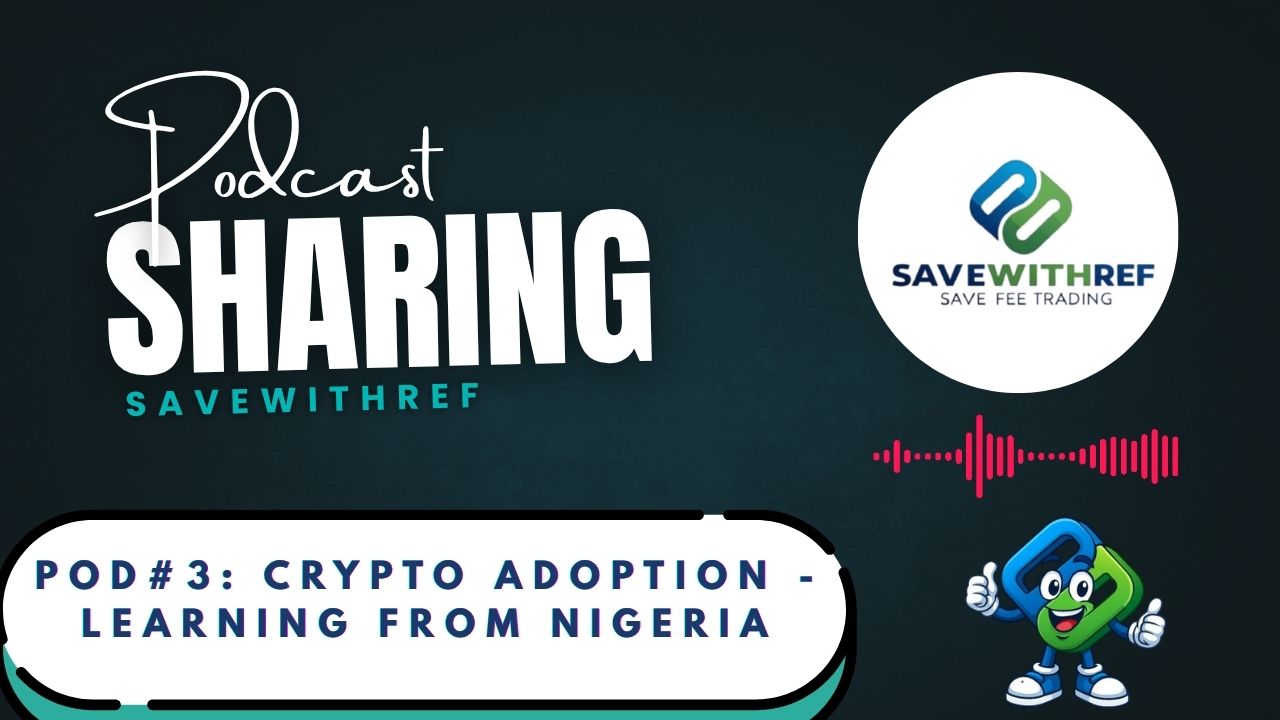where we share real-world experiences in the crypto market! If this is your first time following the channel, we’re offering refund of transaction fees for traders with just a few simple steps—details in the bio and comments.
Today, we’re diving into a topic that’s lighting up the crypto world: how legal frameworks can turbocharge crypto adoption. And let me tell you, there’s no better example than Nigeria—a country that’s absolutely crushing it as a global crypto powerhouse. Nigeria’s not just keeping up; they’re setting the pace for how to do crypto right.
Nigeria: The Crypto Powerhouse of Africa
Let’s start with a massive shoutout to Nigeria. This West African giant is a crypto superstar, and it’s no fluke. With a young, tech-hungry population—over 60% under 30—and a hunger for financial freedom, Nigeria’s become a global leader in crypto adoption. By 2023, they were ranked second worldwide for crypto use, with millions using Bitcoin, stablecoins, and more to send money, pay for goods, and dodge the clunky traditional banking system. Nigeria’s people saw crypto’s potential early, and now their government is stepping up in a big way, turning the country into a blockchain beacon for the world.
A Game-Changing Legal Framework
What makes Nigeria so special? It’s their bold, forward-thinking legal framework. Unlike some countries stuck in the dark ages with bans and confusion, Nigeria’s government has embraced crypto with open arms. The Investment and Securities Act of 2025 was a game-changer, officially recognizing digital assets like Bitcoin as legal property. This move was pure genius. It gave businesses, traders like me, and everyday users the confidence to dive into crypto without worrying about sudden crackdowns. Nigeria’s basically saying, “We’re open for business, and crypto’s welcome here!” That kind of clarity is like rocket fuel for innovation.
Smart Regulation Fuels Trust and Growth
Now, let’s break down how Nigeria’s legal moves are propelling crypto to new heights. First, their regulatory framework is a masterstroke. The Nigerian SEC has rolled out smart rules for crypto exchanges, requiring them to follow anti-money laundering (AML) and know-your-customer (KYC) standards. As a trader, I can’t overstate how much this matters. When exchanges are legit, users trust them, and big players—like institutional investors—start pouring in capital. Nigeria’s rules strike the perfect balance: they crack down on fraud and scams while leaving plenty of room for entrepreneurs to innovate. It’s the kind of environment where crypto dreams become reality.
Pioneering Blockchain Innovation Legal Frameworks
Then there’s Nigeria’s jaw-dropping commitment to blockchain. The government’s not just regulating—they’re innovating. They’ve launched a national blockchain called Nigerium, designed to secure data and streamline everything from government services to business operations. This isn’t some half-baked idea—it’s a bold vision to make Nigeria a global blockchain hub. And it’s working! Heavyweights like Blockchain.com, valued at $14 billion a few years back, are setting up shop in Lagos, bringing jobs, tech, and serious investment. For traders like me, this means more liquidity, more projects, and more chances to profit in a thriving market.
Making Crypto Practical for Everyday Life and Crypto Adoption
Nigeria’s also making crypto practical for everyday life. Their clear tax guidelines mean people know exactly how to report crypto gains, which boosts adoption. Plus, the government’s pushing blockchain into real-world sectors like agriculture, healthcare, and remittances. Picture this: farmers using smart contracts to secure loans or hospitals tracking medical records on a blockchain. This is next-level stuff, and it’s driving crypto demand from the ground up. Nigeria’s not just talking the talk—they’re walking the walk, and it’s paying off big time.
Now, let’s be real: Nigeria’s journey wasn’t always smooth. Back in 2021, their central bank tried to slam the brakes on crypto, banning banks from dealing with crypto firms. The result? A 38% drop in stablecoin use and a lot of frustrated traders. But Nigeria learned fast. They realized crypto’s unstoppable, and instead of fighting it, they flipped the script. By 2025, they’d turned that ban into a blueprint for success, proving that smart regulation beats prohibition every time.
Lessons for the World Legal Frameworks
So, what can the world learn from Nigeria’s brilliance? First, bans are a dead end. Crypto’s like wildfire—it spreads no matter what. Nigeria’s pivot from restriction to regulation shows how to harness that energy. Second, clarity attracts investment. When Nigeria legitimized crypto, global players took notice, pouring money into the market. Third, supporting innovation creates a ripple effect. Nigeria’s blockchain initiatives are creating jobs, boosting tech, and driving adoption, making it a win-win for everyone.
As a trader, I’m beyond excited about Nigeria’s crypto scene. Their legal framework is a magnet for opportunity, and it’s no surprise they’re leading Africa’s blockchain revolution. Other countries, take note: if you want to dominate the digital economy, follow Nigeria’s lead—build clear rules, embrace innovation, and watch crypto soar.


